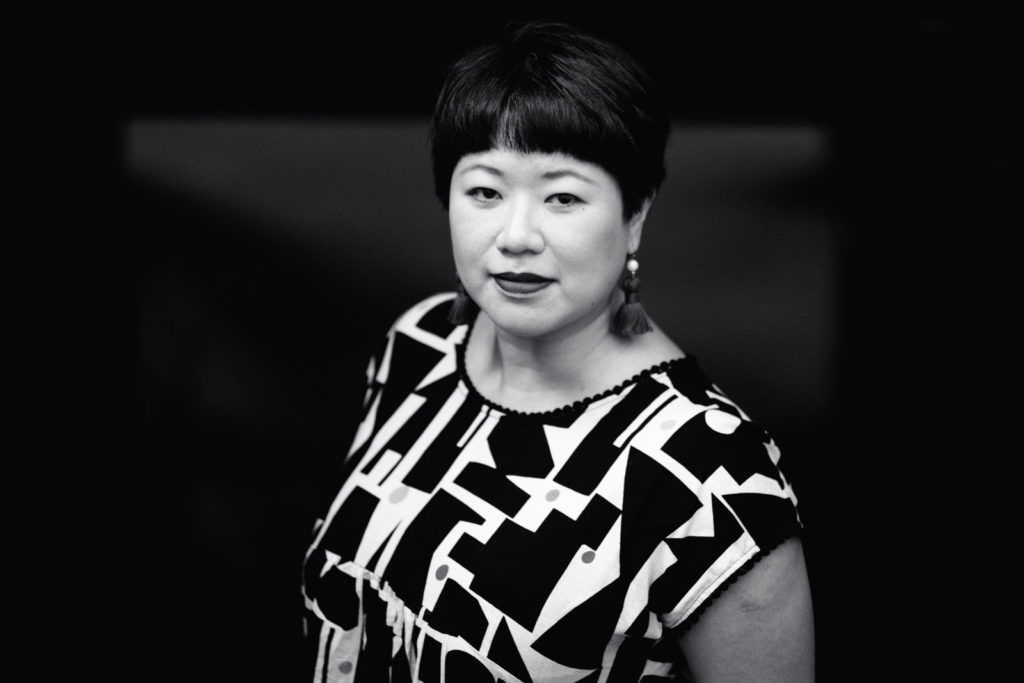Giving Up
“They are like Snow White. They just fall away from the world.”
Elisabeth Hultcrantz, The New Yorker
The young women breathe,
but their hands, if lifted
then released, only flop
like broken wings. Beneath
their closed lids, they stare
like the dead, unseeing—
Once, they bit into apples,
and spat out the worms.
Juice ran down their chins.
Their hair thickens and curls.
Their breasts have budded
in their long, unsettled sleep.
One day, they cried out,
then collapsed. They will not
wake; they do not hear or speak.
They are in glass coffins.
Outside, the water rises
and presses against the panes.
The children know that
if they blink or move they
will only drown all over again.

Vidya: Tell us about your artistic/poetic practice.
Eileen: I have always loved poetry, but I did not begin to write poetry seriously until around 2008. As of 2019, I have had eight books published in Australia and the United States. Four of these books are full collections of poetry, one is a chapbook of poems, one a selection of poems for the American market, one a book of essays, poems, and recipes, and finally, a collaborative art book with the photographer Charlene Winfred. I also teach poetry workshops in schools and at universities. I consider myself a full-time poet.
What prompted Giving Up?
My poem was inspired by the photograph by Magnus Wennman of two Roma girls in Sweden, Djeneta and Ibadeta, who are refugees from Kosovo. Djeneta and Ibadeta suffer from uppgivenhetsyndrom, or resignation syndrome, a condition that exists among refugees in Sweden, whereby children of asylum-seekers withdraw from the world, becoming completely physically non-responsive.
The quote in the epigraph from Elisabeth Hultcrantz, a doctor who treats these children, was taken from an essay by Rachel Aviv, ‘The Trauma of Facing Deportation’, published in The New Yorker on 27 March 2017. The metaphor for the glass coffin in my poem was in part derived from the experience of Georgi, a sufferer of the syndrome, as detailed in the same article.
Have you worked with the Snow White tale or other ‘fairy stories’ in your other work? I found it particularly crushing here in the context of children suffering.
I have always been fascinated with stories. I am a great reader of genre fiction, particularly of fantasy and historical fiction. I feel like fairytales and myths form the backbone of much of our received knowledge and story-making, and re-telling these tales from different perspectives can be a rich vein for any creator. For example, I have written a series of poems about Chinese courtesans, which I call the ‘Lady’ poems, and I have also taken on the story of Mulan, in my poem ‘Magnolia’.
What’s your relationship to writing poetry that responds directly to current events or a headline?
All art is political, and as creators, we make choices around what stories we choose to tell. We also have a responsibility—personal, and wider, to tell the stories that belong with us. Ultimately, I feel like these choices are very individual.
But when you decide to publish something, it then belongs in the public domain, and we must be able to stand behind the work. What are your motives? Is this a story that is best told by you? Are you profiting off someone else’s pain to tell this story? If you are, is there a way you can empower and enable them to tell their own story, instead of wresting the narrative from them?
Who are some poets you are currently reading or commonly turn to?
My touchstones in poetry are many: most recently, I have been re-reading a lot of Linda Gregg, in the light of her passing. Jane Hirshfield’s poetry and essays on poetry is a must-read if you are at all interested in the craft and mystery of poetic practice. I have really enjoyed the moon poems of Jennifer S. Cheng, and this also makes me think of Andy Kissane’s work. I am also re-reading a lot of John Burnside and Robin Robertson as I prepare to travel in Scotland. Judith Beveridge, my friend and mentor, is someone who keeps me anchored in life, and in poetry. And of course my favourite Chinese poets, Du Fu, Wang Wei and Li Qingzhao: centuries dead, still very much alive in my mind.
About the author
vidya rajan is a writer, editor and performance-maker. she currently lives in melbourne and is a writer in residence at the malthouse theatre. you can get in touch on twitter.



